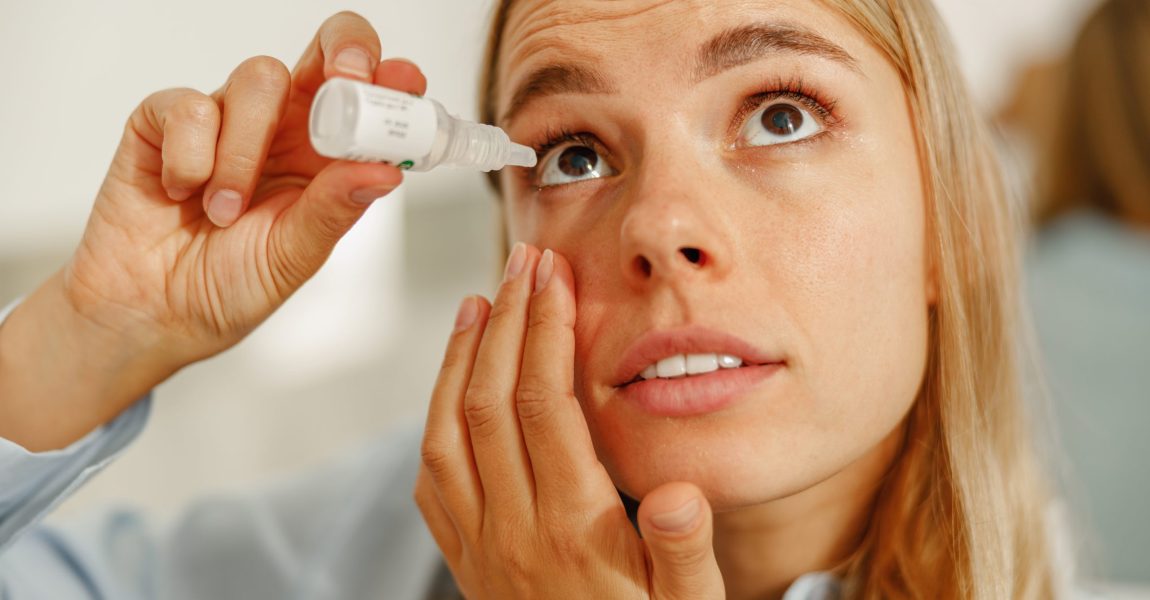Common Causes of Dry Eyes
- Environmental Factors
Dry, windy, or smoky environments can cause tears to evaporate more quickly. Spending long hours in air-conditioned or heated rooms can also dry out the eyes. - Lifestyle Factors
Excessive screen time and lack of blinking when focusing can lead to dry eyes. Contact lens wearers are also more susceptible to dry eye symptoms. - Aging and Hormonal Changes
As people age, tear production naturally decreases, especially in postmenopausal women due to hormonal changes. - Medical Conditions and Medications
Certain medical conditions (like diabetes and rheumatoid arthritis) and medications (such as antihistamines and antidepressants) can reduce tear production.
Effective Remedies for Dry Eyes
- Use Artificial Tears
Over-the-counter artificial tears can provide immediate relief. Opt for preservative-free options for frequent use. - Apply Warm Compresses
Warm compresses help unblock oil glands in the eyelids, improving tear quality and moisture retention. - Adjust Humidity Levels
Using a humidifier adds moisture to the air, helping prevent tears from evaporating too quickly. - Practice the 20-20-20 Rule
Every 20 minutes, look at something 20 feet away for at least 20 seconds to reduce eye strain. - Stay Hydrated
Drinking enough water throughout the day is essential for tear production and overall eye health.
How to Prevent Dry Eyes
- Blink Regularly
Frequent blinking helps to spread tears evenly across the surface of the eyes, especially during prolonged screen time. - Reduce Screen Time
Limit screen exposure or take breaks every hour. Adjust screen brightness and sit at a comfortable distance from your device. - Wear Sunglasses Outdoors
Sunglasses protect your eyes from wind and sun, reducing tear evaporation and shielding against environmental irritants. - Use Contact Lenses Responsibly
Limit contact lens wear time and always follow hygiene practices. Consider switching to daily disposable lenses if dry eyes persist.

Conclusion: Caring for Your Eyes and Preventing Dryness
Dry eyes can be uncomfortable and even disrupt daily activities. By understanding the causes, adopting simple remedies, and implementing preventive measures, you can manage and even reduce the frequency of dry eye symptoms. Prioritize eye health by staying hydrated, taking screen breaks, and consulting an eye specialist if needed.

